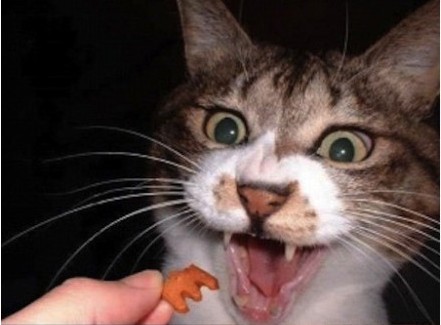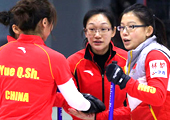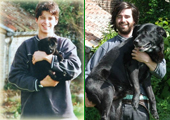For a few seconds, musicians stopped playing and started whispering. Finally they all stood up, shouting and waving their strings and bugles.
The conductor highly praised his Russian partners, saying their understanding of Chinese culture and philosophy was far beyond his imagination.
Years ago, the violin-turned-Erhu composing style brought Tan harsh criticism, with a renowned U.S. newspaper saying he mingled pure wines with beers. Now, the same newspaper calls him "one of the 10 most significant musicians in the world."
The Grammy and Oscar Award winner is widely known for his scores for the movies "Crouching Tiger, Hidden Dragon," and "Hero," the operas Marco Polo and The First Emperor.
Tan said he didn't think about whether the audience could fully understand him.
"If ancient philosophers like Confucius, Chuang Tzu and Lao Tzu wondered whether common people could understand them when they elucidated their thoughts, they would never become such great minds," Tan said.
Chinese artists should adopt the "vision and verve" to communicate with heaven and earth, Tan added.
The musician believes there was no such clear boundary between classical or experimental music.
"It is when we need to explore our spirits and unusual feelings that we classify them as experiments."
The spirit of experiment and innovation should be encouraged to revitalize Chinese tradition, he said.
"The future of the world is hatched in the laboratory. From Isaac Newton to Albert Einstein, from Tan Dun to Franz Haydn, innovation has been an eternal spirit for us."
The internet symphony Eroica, first written by Tan and practiced by thousands of musicians around the world online, was another shot of musical innovation.
The idea of launching the education program came to Tan a few years ago when he realized there were more young people on the "invisible silk road" of the Internet who could become the best envoys and carriers to preserve traditional orchestral culture.
As for his cultural identity, Tan was proud of being a "real Chinese" with all musical seeds budding from the roots of Chinese culture.
At the same time, he was confident to be a world citizen, telling stories of common spirits with Chinese notes.
He endeavored to bridge the gap between West and East, thus paving the way for cultural dialogue in the world, said the 57-year-old Tan.
In his ideas, it was not "more national, more international" but "more international, more national." Chinese music should carry "universal expression" of human souls so as to be recognized by the whole world, Tan said.
【1】 【2】
Recommendations:
News we recommend





























 Landmark building should respect the public's feeling
Landmark building should respect the public's feeling


![]()
